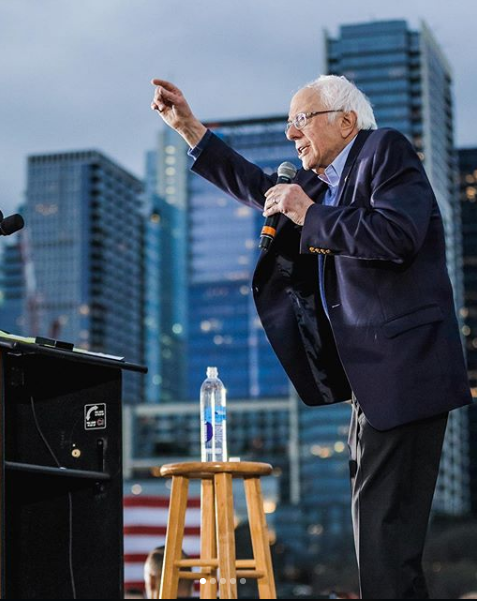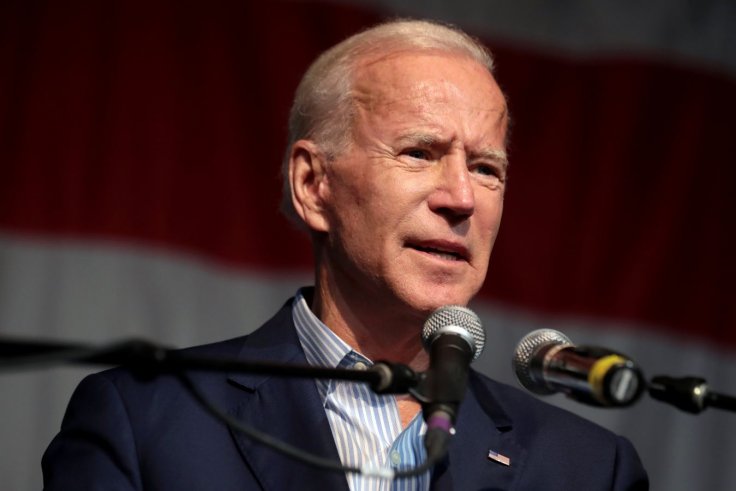For Bernie Sanders to remain competitive with Joe Biden in the battle for the Democratic presidential nomination, he'll have to repeat what he did four years ago: Win the Michigan primary.
This time around, that probably will be harder. Ahead of Tuesday's vote, Biden is showing strength with the same kinds of voters that Sanders, a US senator from Vermont, relied upon in his surprise defeat of front-runner Hillary Clinton in the state in 2016. Sanders goes into Michigan badly in need of a win after former Vice President Biden seized control of the race on Super Tuesday this week, winning a bevvy of Southern states as well as Massachusetts, Minnesota and Texas and causing rivals Michael Bloomberg and Elizabeth Warren to drop out.
Michigan is the most competitive of the six states

Michigan is the most competitive of the six states that hold nominating contests on Tuesday. It offers the largest number of the minimum 1,991 delegates a candidate needs to secure the nomination outright: 125. And it's a critical moment for Sanders to try to recapture momentum before the contest shifts to Florida and Illinois the following week. In addition to Michigan, Washington state, Mississippi, Missouri and Idaho will be holding primary elections on Tuesday. North Dakota will hold caucuses.
A Sanders loss in Michigan could give Biden an insurmountable lead as the state-by-state nominating process moves into a friendly territory for the man best remembered as No. 2 in President Barack Obama's historic administration. The state also greatly matters for Nov. 3 general election. It flipped Republican in 2016, voting for now-President Donald Trump over Clinton by just over 10,000 votes.
"Michigan is your got-to-win state," said Adam Hollier, an African-American state senator from Detroit who is backing Biden. Biden parlayed his popularity with black voters into huge gains on Super Tuesday, winning 70 percent of African-American voters in Alabama and Virginia and 60% in North Carolina and Texas, according to exit polls from Edison Research.
They will be crucial in Michigan, where they comprise almost 14% of the population. Some areas of Detroit are 80 percent African-American. "When you look at what he did all across the South, those same demographics are going to be at play in Detroit," Hollier said. Sanders cancelled plans to campaign in Mississippi this weekend, focusing instead on Michigan.
UNION LABELS

Sanders may have better luck with union voters in manufacturing-heavy Michigan. He won the state's white working-class voters in 2016, and they remain a reliable part of his base. Richard Cassel, 28, lost his job as an auto engineer in Detroit last month. That same week, he walked into a Sanders campaign office and volunteered to work the phones. "For me, Biden is just more of the same. The middle class is working professionals, and everyone else is slowly drowning," Cassel said. But Biden has long-standing ties to labour unions and routinely talks about how the middle-class and union members built the nation.
The powerful United Auto Workers Union has yet to endorse any candidate, but its spokesman, Brian Rothenberg, said it supports the idea of universal healthcare. Sanders has made a government-run healthcare system, Medicare for All, the heart of his campaign. "The high cost of healthcare is one of the impacts when you're bargaining, so universal healthcare would actually give you a better ability to bargain at the table," Rothenberg said.
Not all of Sanders' positions play well with the state's unions, though. In particular, he has called for the closure of a 66-year-old crude oil pipeline that runs below portions of the Great Lakes, as part of his sweeping plan to swiftly end the US fossil fuel economy to fight climate change. "It's going to cost (Sanders) a lot of support in our union," said Terry Gilligan, business manager of Detroit Pipefitters Local 636.
And two Michigan chapters of the United Food and Commercial Workers Union endorsed Biden on Friday. Sanders is running ads in Michigan criticizing Biden over his past support for global trade deals such as the North American Free Trade Agreement (NAFTA). Biden, in turn, argues that he was a key player in the 2009 auto industry bailout that rescued jobs in the state.
RURAL RUN
In 2016, Sanders performed surprisingly well in the wealthy suburbs outside Detroit and blew Clinton away in rural counties. But there is evidence he won't do that again this time. On Super Tuesday, Biden consistently beat Sanders in suburbs outside of cities including Charlotte, North Carolina, and Houston. And in rural regions of Minnesota, a Midwestern state like Michigan with a largely white population, Biden smashed Sanders, 43 percent to 19 percent, according to exit polls.
This weekend, Biden's campaign will deploy former presidential candidate Amy Klobuchar, a senator from Minnesota, to stump in Grand Rapids – an area that Sanders won in 2016. Dawn Bryant, 40, a General Motors Co factory worker who was laid off earlier this year, said she was torn between Sanders and Biden. "I'm divided. I'm not sure. I'm going to keep watching and weighing my options on both of the candidates," she said. "It's a tough, tough call."









